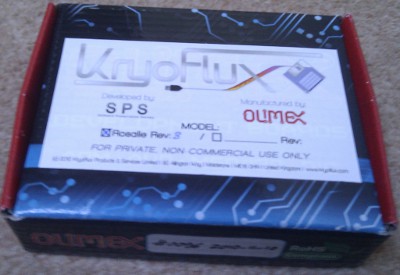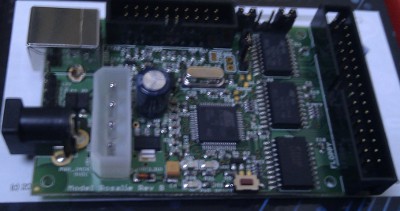It’s been a few weeks since the last post on here. There’s a combination of reasons, one of which is the size of the book I’m reading but the main delay is that I’ve been playing some of the games I’ve been meaning to get around to for years. I recently started on Wasteland which has led on to the rest of the Fallout series and I’m partway into Fallout 2 at the moment. I loved Wasteland and Fallout and would recommend them to anyone with a passing interest in RPG’s. After the high standards so far, Fallout 2 is a bit disappointing in all honesty. It’s falling into RPG clichés with many of the quests and just isn’t as polished or original as the first game. It makes up for the shortfalls in sheer size which may be the cause of its problems in the first place. This series will be seriously eating into my time for the next month or two anyway so the posts could be a little infrequent. I’ll definitely get the next book finished this weekend.
I’d usually leave the news reporting to other sites but I can’t let some of the events from this week pass unmentioned. Top of the list has to be EA signing up with GOG to release 25 games, including some of the classics from Origin. They have started off with Privateer, Underworld 1 + 2 and Dungeon Keeper. Whoever picked these games clearly has good taste as they would have to be 3 of my favourite titles from EA’s catalog. I’d have put System Shock in there myself but I gather that isn’t getting a re-release for the moment due to licensing issues which is a crying shame. Hopefully they can be sorted out in the long run. For the moment we definitely have the Crusader games following soon and presumably the Ultima series. I can live without the Runes Of Virtue games but I hope that the Worlds Of Ultima games aren’t forgotten this time and finally see the light of day again.
It does occur to me that its very easy to think of more than 25 EA games that should be on GOG without even including Origin. I doubt that we will see the older games like Autoduel or 2400AD as GOG have previously ignored games from this era outside of compilations. This is understandable but it would be nice to see these games on there with a really cheap price point of $2-3. There should be more chance of seeing the more modern but slightly obscure titles like Pacific Strike or Cybermage but it is hard to second guess which games GOG will release from what I’ve seen so far. They have had the Activision license for ages and we still haven’t seen the Quest For Glory games, but we have had Police Quest. I like the Police Quest series and all that but Quest For Glory is a true classic.
In one sense, there isn’t much reason for me to be excited about any of these games getting a re-release since I expect out of the 25, I’ll probably own around 20 of them already and the rest will be titles that don’t interest me. It’s very significant that a giant like EA has agreed to go DRM free with GOG though and if classic games are ever going to find a modern audience they need to be available in this format. It may be one of my favourite games but how much a game like Underworld would interest a modern player, I don’t know. I’d be very curious to know what the demographic is like at GOG and the age of the people who have bought all these games. I’d expect it to be mostly people in their 30’s like myself, picking up old favourites or classics that they never played at the time but I’ve no idea whether that is the case.
The re-releases are not all good news. Underworld is apparently missing the install files. This means that you can’t easily change the sound system and are stuck with adlib sound. Given the progress with MUNT this is clearly not the way to play the game. Righteous Fire isn’t included with Privateer, again for licensing reasons although I have no idea what those could be. You also don’t get Deeper Dungeons with Dungeon Keeper, which isn’t that big a deal in my opinion but it should really have been in there. What strikes me with all this is that you are arguably better off just buying the games on Ebay. If you aren’t bothered about having the original boxes (which you don’t get with GOG anyway) you could probably get them for a similar price without having to lose the expansion packs. Whatever your prefered format, all 3 titles are essential gaming and if you’ve never played them, you should stop reading this and go buy them.
On the same day, we have also had the launch of ultimaforever.com, although the site appears to be up and down like a yo-yo. When you can access it, the site isn’t anything to write home about unfortunately. What we get on there, for now, is a single page with the free download of Ultima 4 which had been widely available for years until EA started chasing people down, and is still on 2 other websites legitimately. It’s the same version of the game and isn’t even packaged with DOSBox. You do get the cluebook although that’s been on replacementdocs for 5 years now. Looking at the website, I can’t help but notice the dodgy box art for all the games. It appears that EA don’t have the artwork for the side panels and for a professional website it doesn’t look great. Until they get some more content, the only significance to this site for now is that it confirms that a new Ultima is on the way, but we all knew that already. I have a bad feeling about how that might turn out so I’m not going to get my hopes up but I’ll certainly give it a go whenever it arrives, provided it isn’t just another MMORPG.
In one last piece of news, the Origin brand lives again! Sort of. EA is launching its own download service today, called for whatever reason Origin. If they hadn’t just released some classic games on the same day, I’d think they were taking the mick but I guess I can live with it in the circumstances. The service is launching with 150 titles so we may see an actual Origin game or two on there but I’d expect it to concentrate on much more recent titles and leave the older games to GOG.
Aside from Origin, the one thing all this news has in common is digital downloads, which isn’t something that I’m a huge fan of. I only ever buy anything in that format if it is extremely cheap as you can regularly get a boxed original for the same price or less. If GOG’s ill-judged stunt last year (where they pretended to be closing down) proved anything, it is that if you don’t own a hard copy of a game, you don’t own the game at all. GOG is an exception here to be fair, as long as you back up your downloads, but I doubt this will be the case with EA’s Origin. Digital downloads is the way the industry is going and this move by EA is another large step toward the death of physical media. I’m clearly in the minority wanting hard copies. I can see that having about 7 bookcases full of games isn’t for everyone and there are plenty of advantages to services like Steam but I’d rather be working toward the 8th bookcase myself, not that I need any more games.


